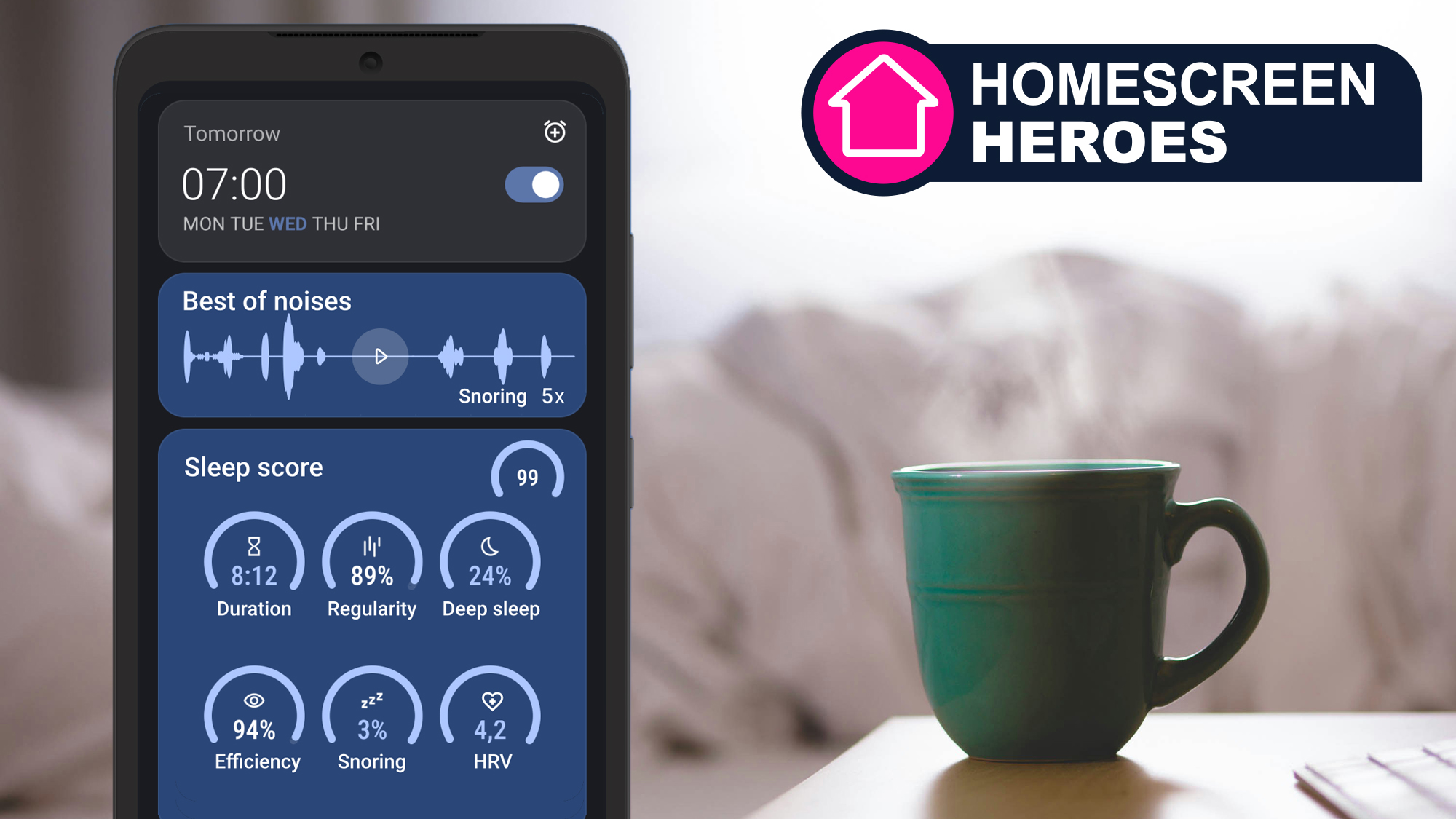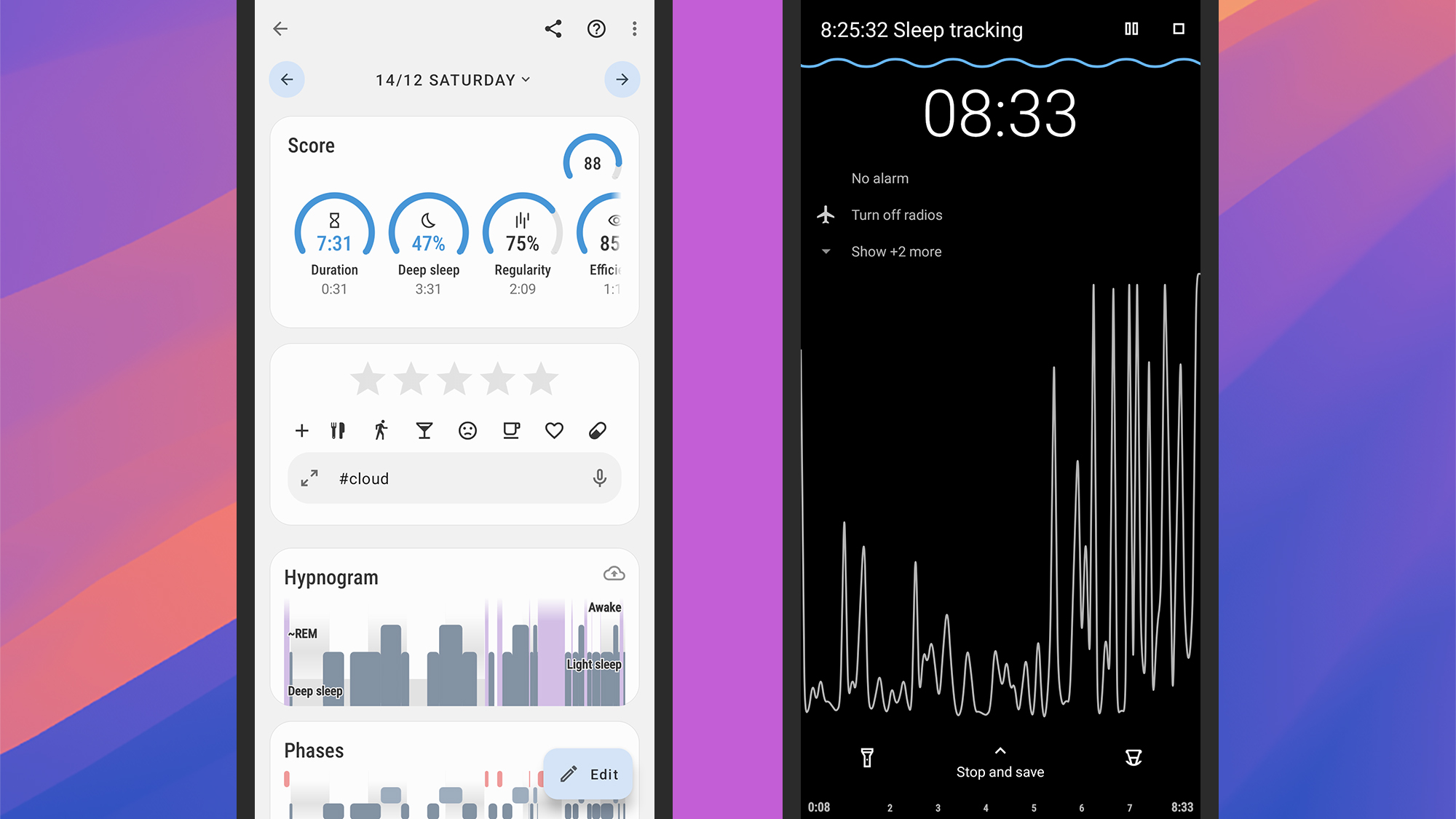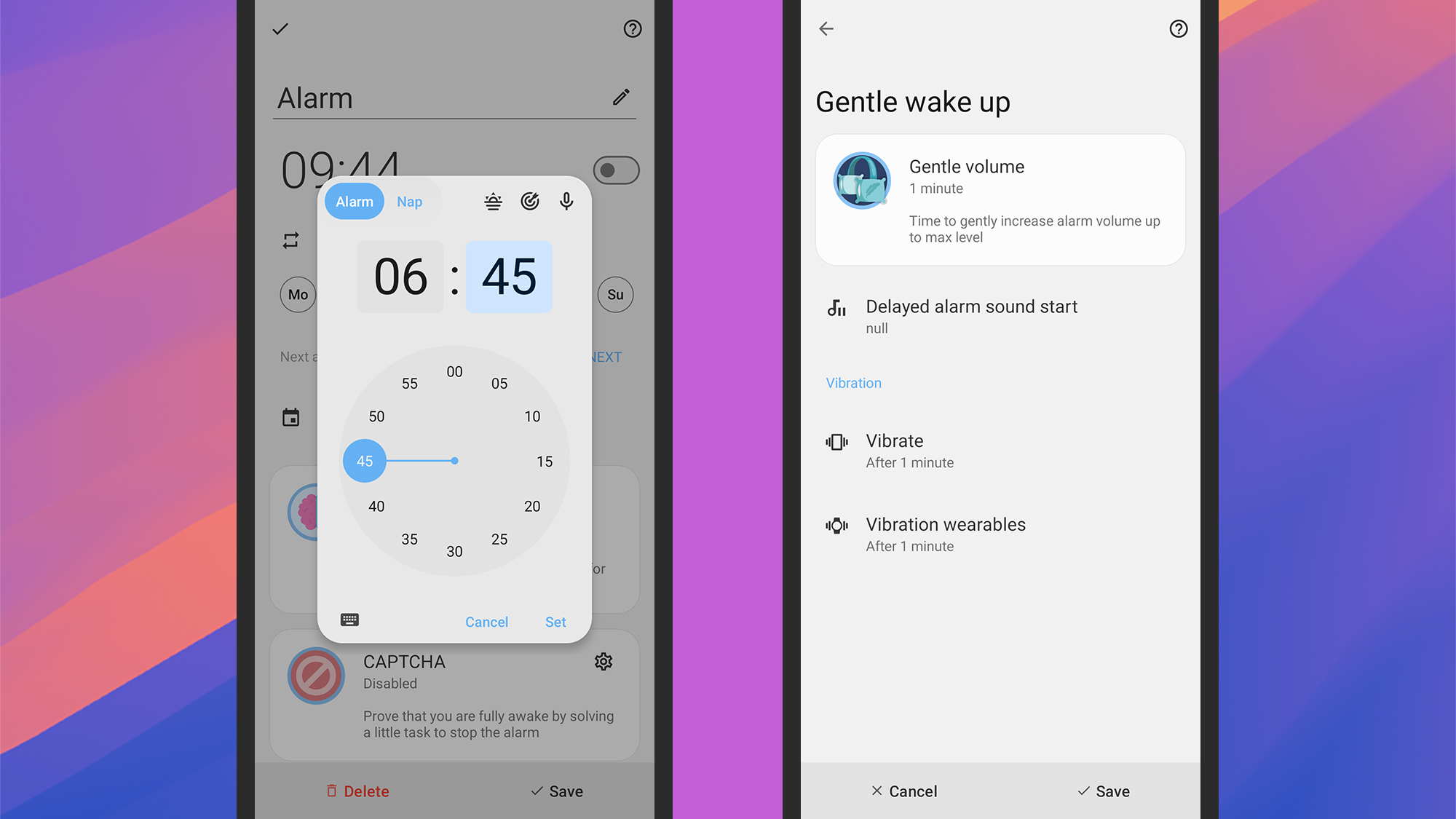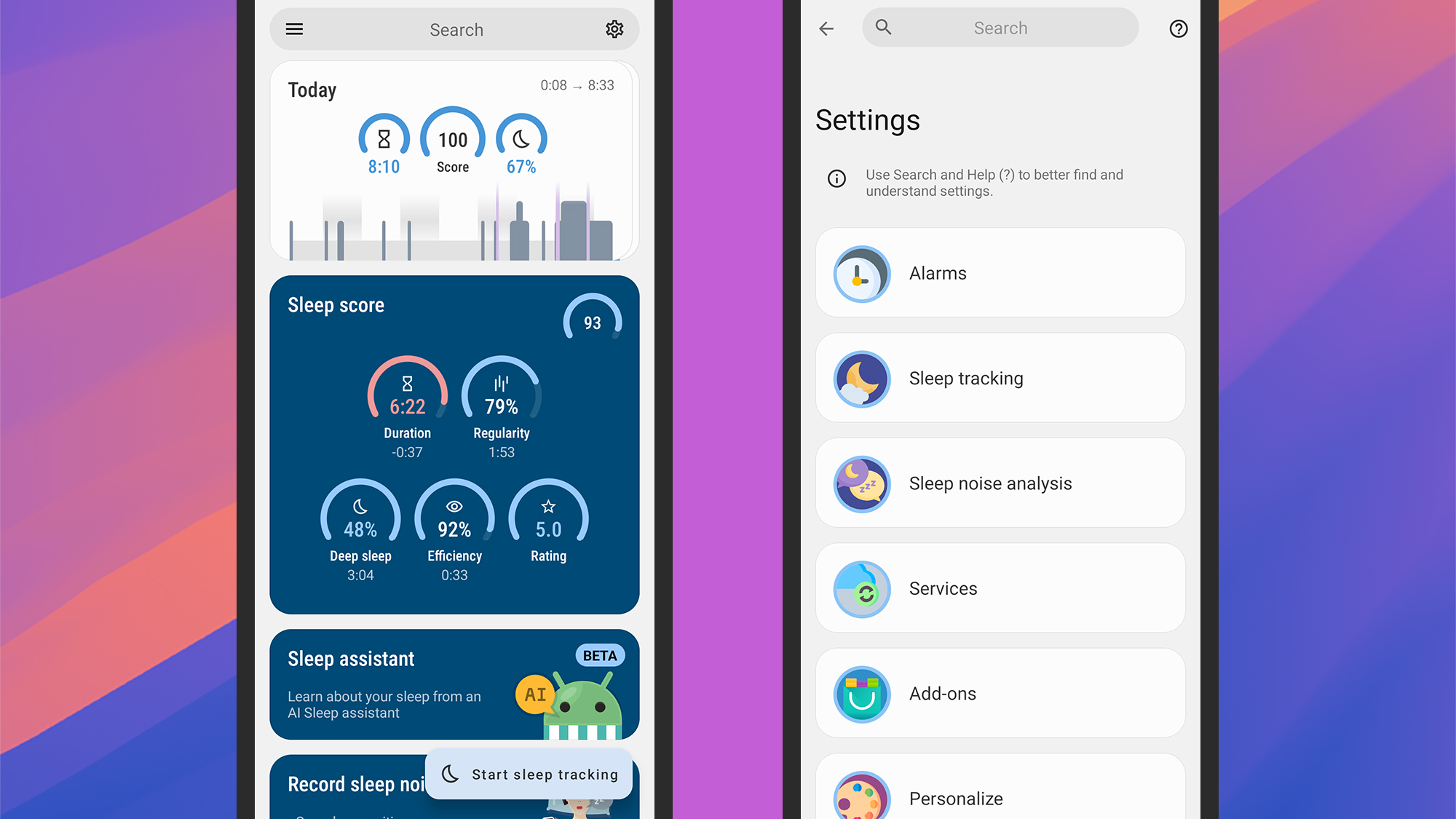This Android app fixed my sleep routine in 2024 – here's how it could improve your shuteye this year
Sleep as Android is a truly comprehensive slumber assistant

This is part of a regular series of articles exploring the apps that we couldn't live without. Read them all here.
Considering sleep is so important to so many facets of our health, it should be worrying that more than a third of us aren't getting enough every night – and it's something I haven't prioritized enough in recent times. There's always one more TV show episode to watch, one more gaming mission to complete, or (quite a lot of the time) one more gadget review deadline to meet.
A few years back I discovered Sleep as Android, and while I wouldn't say it instantly revolutionized my sleeping habits, over time it's certainly been nudging them in the right direction. My sleep routine is now much better than it was when I started using the app, and I still use it almost every night.
It's absolutely packed with features, from sleep cycle tracking to smart light syncing, and I love being able to track my sleep without having to wear a bulky wearable to bed (it also means I can charge my smartwatch overnight). However, it can sync with a variety of watches if you want it to.
The app is available for Android and can be used for free, with extra features available for a monthly fee of $4.99 / £4.99 (about AU$7.90), or a yearly fee of $49.99 / £49.99 (about AU$79). These extra features include more stats, more customization options, more integrations – and no ads.
As I'm a paid-up premium member, I'll be talking about that version of the app – after you install the app for the first time, you can try out the premium features for free for 14 days, so you can see for yourself how useful you find them.
Sleep tracking
Sleep tracking is the main reason I used Sleep as Android, and it hits the perfect balance between simplicity and complexity – it's really simple to start tracking (it just takes a couple of taps), and yet there are a host of different metrics measured. All I have to do is put my phone down on the corner of my mattress and go to sleep.
You get measurements for sleep duration, as well as sleep efficiency, sleep regularity, and sleep phases – all individual per night, or averaged over time. You can track how much you're snoring, how much you're moving, and you can rate each night of sleep yourself. There's also space to log details like whether or not you had a beer before bed, and how stressed you feel each night.
Get daily insight, inspiration and deals in your inbox
Sign up for breaking news, reviews, opinion, top tech deals, and more.

Now I'm no sleep scientist, but as far as I can tell, the app is pretty spot on with its measurements. If you forget to start the tracker but you still leave your phone on your bed, you get a prompt asking if you want to log the night's sleep – and when this has happened to me, the guesstimates the app has made have been impressively good. You can also enable fully automatic sleep tracking, but I always use the manual option.
The app offers advice about improving your sleep habits, and can track trends over time. What's more – and crucially, in an app like this – everything is presented in a way that's easy on the eye. The interface is informative without being overwhelming, and you can quickly switch between at-a-glance overviews and more detailed stat breakdowns.
Smart alarms
Sleep tracking is only part of the story with Sleep as Android. I also love the way you can set up bedtime reminders and smart alarms – alarms that can be configured to wake you up at the right time for your circadian rhythms, or (if you're a normal person with a job to get to) within a specified window in your schedule.
The alarm options range from gentle nature sounds to maths puzzles that make sure you're up and awake before the alarm ringing stops. Alarms can be set for sunrise or to match the amount of sleep the app thinks you need, and there are a multitude of options for setting repeat alarms or short timers for naps.

It really does have everything you could possibly think of – I've actually been using the Sleep as Android alarm instead of the default Android Clock alarm for a while now. As a nice bonus, you can have the sleep tracking automatically stop when the alarm goes off, which saves you having to do it manually.
Want your alarms to sync up with Spotify or your Philips Hue smart lights? No problem, because Sleep as Android can do that too. There's even a dream journal here – it really is incredible how many features the developers have packed in here, while still making the app feel lightweight and straightforward to use.
Using Sleep as Android
Those are the key features of Sleep as Android then, so what's it actually like to use? Well, the fact that I've had it installed on successive Android phones for years is testament to what a clever app this is, and the number of quality features the developers have managed to pack in. It's an app that continues to get upgrades and new tools included, as well.
Aside from the sheer number of different components to the app, the combination of a friendly and stylish interface, together with a little bit of gamification, means it's an app that I actually want to open up and make use of – and when it comes to health and fitness, and tracking stats over time, that's crucial. If you're only tracking your sleep once in a while, it's much less useful.

You also get a lot of control over the Sleep as Android interface too, which I like. You can prioritize the sections that are of most use, and hide the other ones away to some extent. You're able to configure colors and animations, and even the day that the app considers to be the start of the week.
There's plenty that I haven't used too: you can track sleep with a Wear OS, Galaxy, Fitbit, or Garmin watch if you want, though I don't. Meanwhile, if you're sleeping with a partner, you can install the app on both your phones – Sleep as Android is then clever enough to filter out the two sets of stats to give you personalized readings.
You might also like

Dave is a freelance tech journalist who has been writing about gadgets, apps and the web for more than two decades. Based out of Stockport, England, on TechRadar you'll find him covering news, features and reviews, particularly for phones, tablets and wearables. Working to ensure our breaking news coverage is the best in the business over weekends, David also has bylines at Gizmodo, T3, PopSci and a few other places besides, as well as being many years editing the likes of PC Explorer and The Hardware Handbook.